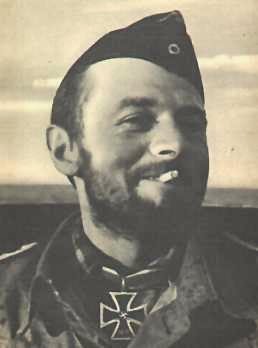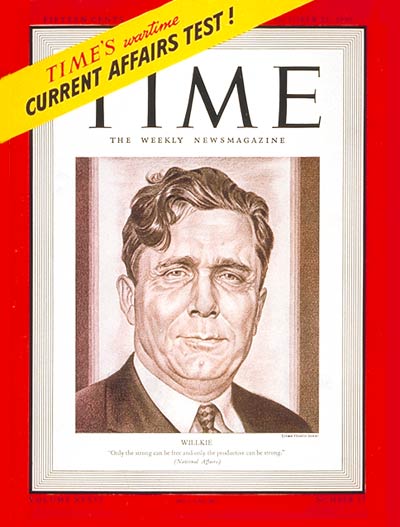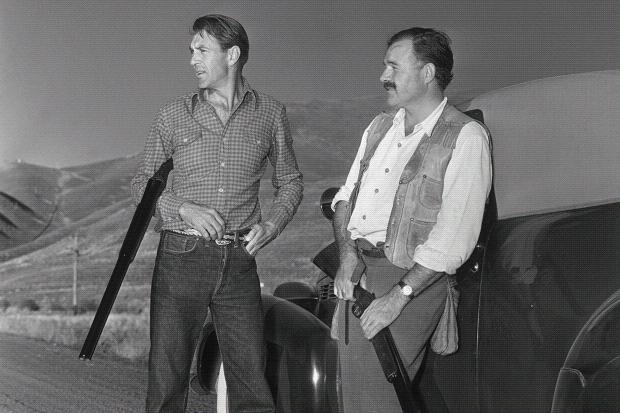Monday 21 October 1940
 |
| October 21, 1940: Accordion players and singers playing at the Aldwych tube station subway stop. The troupe traveled from station to station each night. |
During the morning, there are small raids in London, Liverpool, Northampton, Cambridge, and the Duxford area.
Some Junkers Ju 88s and Dornier Do 17s attempt bombing missions during the afternoon when the weather clears a bit. One odd incident takes place at Old Sarum when a Ju 88 poses as a Bristol Blenheim while attacking the airfield there. However, ultimately the bomber is shot down by RAF No. 609 Squadron.
After dark, there are raids on the usual targets: London, Liverpool and the Midlands with further raids on Sheffield, South Wales and Lancashire. The Luftwaffe also drops mines in the Thames Estuary and off Swansea. A particularly devastating hit is scored by a land mine at Strathmore Avenue, Beverley High Road, near the River Hull. It devastates the entire area, kills two, and injures many others.
Tonight counts as Liverpool's 200th air raid, conducted by KGr 606 and III,/KG 27.
Coventry, home to many strategic factories, also gets hit again. This is a particularly devastating raid that devastates both businesses and infrastructure. A water main break floods the nearby Northern Line.
The day is pretty much a wash, with a handful of Luftwaffe planes lost and nary a single RAF plane - an extreme rarity during the Battle of Britain.
The coastal guns at Hellfire Corner (the Dover Strait) exchange fire between 14:00 and 16:00. Several of the six German shells fired fail to detonate, as was the case yesterday.
European Air Operations: During the day, RAF Bomber Command attacks the ports of Boulogne and Gravelines. It also attacks a convoy off the French coast, damaging a ship. After dark, the targets include the Skoda plant at Pilsen, the Hamburg dockyards, oil installations at Reisholz, and Stade Airfield near Hamburg.
A Vickers Wellington V is tested for altitude and reaches 20,000 feet.
The Luftwaffe night fighters get another victory when Hptmn Karl Hülshoff of 1./NJG2 damages an Armstrong Whitworth Whitley of RAF No. 58 Squadron. It almost makes it back to base but crashes into a hillside at Botton Head on Ingleby Greenhow Moor, North Yorkshire.
The Luftwaffe shuffles some of its personnel. Kommodore of KG 2 Generalmajor Johannes Fink becomes Inspector of Bomber and Ground Attack Flyers. Oberst Herbert Rieckhoff from KG 30 replaces him, and Oblt. Erich Blödorn replaces Rieckhoff.
 |
| Kapitänleutnant Claus Korth of U-93. |
The Luftwaffe bombs and sinks 825-ton Irish collier Kerry Head about 9 km south of Blackball Head, County Kerry. All 12 men aboard perish in the sinking.
Royal Navy auxiliary minesweeper HMT Waveflower also hits a mine and sinks in the North Sea off Aldeburgh, Suffolk. There are seven survivors and 15 crew perish.
Royal Navy motor torpedo boat MTB 17 (Lt R. I. T. Falkner) hits a mine and sinks off Ostend, West Flanders. It sinks in shallow water and can be salvaged.
Royal Navy minelayers HMS Teviotbank and Plover, along with destroyers Icarus and Impulsive, lay minefield BS 42 in the North Sea.
Convoy OB 232 departs from Liverpool, Convoy FS 316 departs from Methil.
Wolfgang Lüth transfers out of U-138 and assumes command of U-43, an ocean-going submarine.
Royal Navy corvette HMCS Jonquil (K 68, Lt. Commander Robert E. H. Partington) is commissioned.
 |
| Hurricanes of RAF No. 1 Squadron and Spitfires of RAF No. 266 Squadron performing a flyover for factory workers. October 1940. |
Convoy BN 7, sailing out of Bombay, is attacked by Italian destroyers Manin, Sauro, Battisti and Francesco Nullo, operating out of Massawa, at 02:19. The Nullo is badly damaged by HMS Kimberley and Australian sloop HMAS Yarra and is beached/runs aground (it is unclear which). Bristol Blenheim bombers later destroy the Nullo, which is beached on Harmi Island, Italian Somaliland.
Royal Navy destroyer HMS Kimberley is hit by Massawa shore artillery and damaged. Three men are wounded. The destroyer must be towed by light cruiser Leander to Port Sudan, and later travels to Bombay for permanent repairs.
The RAF attacks Italian transport between Sollum and Buq Buq. Other operations include attacks on Italian East Africa/Abyssinia (Bahir Dar and Tessenei) and Eritrea (Gura and Asmara).
The Royal Navy is planning an airstrike, Operation Judgment, against the Italian fleet at Taranto. Fire on aircraft carrier HMS Illustrious destroys four Swordfish of RAF No. 819 Squadron postpones the operation for at least a week.
Royal Navy submarine HMS Parthian spots an Italian submarine off Cape Colonna and tries to ram it, but fails.
Italian submarine Scirè, which carries three manned torpedoes, sails from La Spezia once again for Gibraltar to carry out its mission against the Royal Navy based there.
At Malta, the Information Office announces that enemy air losses over Malta since the outbreak of the war have been 25 and badly damaged aircraft 20. RAF losses to date have totaled three fighters and two pilots. This is a rebuttal to Italian propaganda which has stated that the Regia Aeronautica has crushed RAF resistance on the island.
The South African 2nd Infantry Brigade arrives at Mombasa.
Battle of the Baltic: Finnish 623 ton wooden coaster Astrid is crossing the Baltic from Leningrad at 21:50 carrying salt when it sinks near Kovisto to the south of Gogland/Suursaari. It usually is reported that the coaster hits a mine, but the better sources suggest that a Soviet submarine rams it. There are 3 survivors and 9 men perish. The Soviet sub rescues the survivors and takes them to the naval base at Kronstadt near Leningrad, where they are kept for a month. This incident is subject to much suspicion about what actually happened, and not even the identity of the submarine is certain (apparently S-102). Many hard feelings were left over from the Winter War at the time. Some blame the Finnish ship for not running navigational lights. Others claim that the Finnish ship had its lights on and it was the new Soviet sub that was running dark, and this is supported somewhat by the fact that S-102's crew was inexperienced as the submarine was still on its trials. In any event, the timing of this incident is striking because Soviet Foreign Minister Molotov and the rest of the Politburo are quite concerned about transit rights recently granted by the Finns to Wehrmacht troops. There is no evidence, however, that this was a planned incident, perhaps a question of Soviet indifference or inattention. This is the kind of murky incident that keeps World War II discussion boards humming.
Battle of the Pacific: Light cruiser HMNZS Adelaide and Achilles depart for patrols out of Sydney and Auckland, respectively, after reports of a German raider in the vicinity. They find nothing. However, the reports are probably accurate, as raider Pinguin and its consort Passat are traveling in the vicinity to lay minefields off southern Australia.
Battle of the Indian Ocean: German raider Atlantis captures 5623-ton Yugoslavian freighter Durmitor. The Germans quickly rename it Radwinter and put a prize crew on it to sail to Mogadishu.
In his reply, Stalin agrees to Ribbentrop's proposal that they meet in Berlin, to be followed by a meeting in Moscow:
I agree with you that a further improvement in the relations between our countries is entirely possible on the permanent basis of a long-range definition of mutual interests.Molotov proposes 10-12 November as good dates for his visit. However, he carefully sets aside any possibility of involving Italy and Japan in the negotiations. Hitler's grand idea is to get the USSR to sign on with the Tripartite Pact, and he remains confident that will happen. The Germans are extremely excited at what appears to be a thawing of relations between the two parties.
Both sides, meanwhile, have been busy crafting war plans to invade the other. Molotov, in particular, is greatly concerned by German activity in Finland, where the Finns have granted the Wehrmacht transit rights and engaged in trade agreements with Germany. In the paranoid minds of the Kremlin, this all seems directed at them - and to a large extent, they are right. The Soviet attitude on the recent matter is not nearly as rosy as the Germans assume or would like to believe.
Terrorism: Two men of the 2nd Battalion Royal Irish Fusiliers on Malta are arrested and face dishonorable discharges for suspected IRA activities. Ultimately, one is repatriated, the other jailed for two years for "involuntary homicide."
German Military: Naval officer Friedrich Ruge, who won the Iron Cross 2nd Class during World War I, now receives the Knight's Cross of the Iron Cross as Kapitän zur See and commodore leader of the Minensuchboote West.
Generalfeldmarschall Fedor von Bock's Army Group B headquarters, now redesignated Army Group Center, moves to Posen. Field Marshal Wilhelm List takes temporary command when von Bock goes on medical leave.
US Military: The Greenslade Board departs from San Juan, Puerto Rico to visit Hamilton, Bermuda. The Board is inspecting naval bases recently acquired pursuant to the destroyers-for-bases deal.
Italy: Benito Mussolini sets a firm date for the invasion of Greece of 28 October.
India: The British authorities are working valiantly to prevent any civil war by nationalists. Today, Gandhi's Congress Party begins non-violent protests. The British begin arresting the first of thousands of protesters for such acts as demonstrations and anti-war speeches.
China: Heitaro Kimura becomes chief of staff of Kenkichi Ueda, leader of the Japanese Kwantung Army in northeastern China.
American Homefront: Ernest Hemingway publishes "For Whom the Bell Tolls" about the Spanish Civil War.
 |
| "Young Bill Hickok," starring Roy Rogers and Gabby Hayes, is released. |
In an angry tone, Churchill gets off some of his sharpest taunts at Hitler's expense, who he at first calls "Herr Hitler," but then "this evil man, this monstrous abortion of hatred and defeat":
We are waiting for the long-promised invasion. So are the fishes.As he is wont to do, Churchill references Napoleon in a sentimental manner - not exactly how England felt about the Emperor while defeating him, but times have changed - and casually throws in a mention of "our friends across the Atlantic Ocean" as a sort of ace in the hole. Referencing Hitler, he vows:
If he does not destroy us, we surely shall destroy him and all his gang and all his works.Churchill also plays on French fears by hinting darkly that Italy intends to wrest away the best parts of France, including "Nice, Savoy, and Corsica - Napoleon's Corsica." He notes that there is little love lost between the Germany/Italy coalition and France at this point, and offers little subtlety in warning about how "these two ugly customers" intent to not only rape France but cause its "complete obliteration."
Churchill has good reason to be angry. U-boat wolfpacks in the last few days have destroyed two convoys from Canada (SC 7 and HX 79), brushing aside the Royal Navy escorts as if they weren't even there. Those weren't the only losses at sea, either. Churchill, as former First Lord of the Admiralty, is extremely sensitive to naval developments, more so than events in the air. Despite the victories in the air, this is one of the darkest periods of the war for Great Britain.
But there are things going on behind the scenes that cast the situation in an entirely different light. Unbeknownst to anyone, Marshal Petain and Churchill secretly are negotiating through an intermediary. Petain, in fact, is in the process of sending his representative to London to see if some kind of reconciliation can be worked out between the two countries. This, of course, is particularly sensitive for Petain, because Hitler literally is on his way to meet Petain, Laval, and Franco (all separately) to discuss his own vision of forming a united front against England. If Hitler knew what Petain was doing behind his back, he would not be pleased. Churchill does, and he fairly gloats about it in this address without revealing why.
How much each side knows about the other's plans is unclear, but Churchill has a habit of interjecting himself forcefully into the internal affairs of the Continent in quite unsubtle (in hindsight) ways. The timing of this France-friendly address appears a bit too coincidental. It is likely Churchill knows what Hitler has in mind and is throwing in his own two cents before the big meetings. We shall see more of this in the near future.
Separately, Britain institutes a purchase tax.
Future History: Manfred Sepse Lubowitz is born in Johannesburg, Union of South Africa. He moves to London in 1961, changes his name to Manfred Mann while writing for a jazz magazine, and forms a blues-jazz band. They are signed to a record deal with EMI in 1963 as part of the "British Invasion." Mann goes on to front a number of acts which include his name in the moniker. He continues to perform with his most recent band, "Manfred Mann's Earth Band."
 |
| The US Presidential campaign is entering the home stretch, with Republican Wendell Willkie trying to prevent a third term by Franklin Roosevelt. |
October 1940
October 2, 1940: Hitler's Polish Plans
October 3, 1940: British Cabinet Shakeup
October 4, 1940: Brenner Pass Meeting
October 5, 1940: Mussolini Alters Strategy
October 6, 1940: Iron Guard Marches
October 7, 1940: McCollum Memo
October 8, 1940: Germans in Romania
October 9, 1940: John Lennon Arrives
October 10, 1940: Führer-Sofortprogramm
October 11, 1940: E-Boats Attack!
October 12, 1940: Sealion Cancelled
October 13, 1940: New World Order
October 14, 1940: Balham Tragedy
October 15, 1940: Mussolini Targets Greece
October 16, 1940: Japanese Seek Oil
October 17, 1940: RAF Shakeup
October 18, 1940: Convoy SC-7 Catastrophe
October 19, 1940: Convoy HX-79 Catastrophe
October 20, 1940: Convoy OB-229 Disaster
October 21, 1940: This Evil Man Hitler
October 22, 1940: Aktion Wagner-Burckel
October 23, 1940: Hitler at Hendaye
October 24, 1940: Hitler and Petain
October 25, 1940: Petain Woos Churchill
October 26, 1940: Empress of Britain Attack
October 27, 1940: Greece Rejects Italian Demands
October 28, 1940: Oxi Day
October 29, 1940: US Draft Begins
October 30, 1940: RAF Area Bombing Authorized
October 31, 1940: End of Battle of Britain
2020

No comments:
Post a Comment